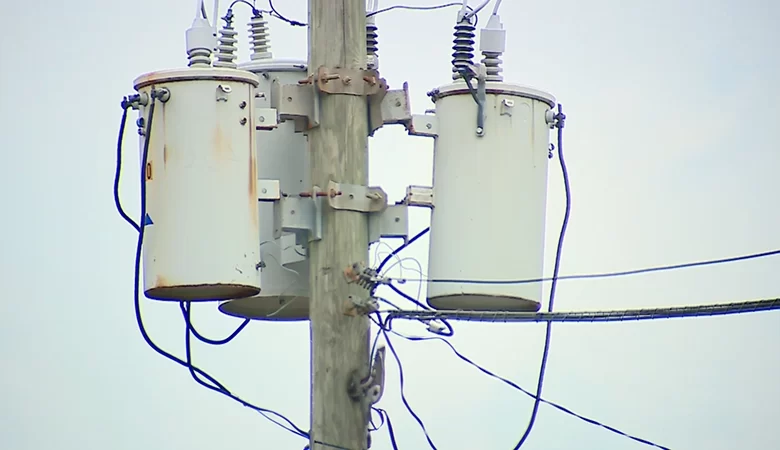Electricity Supply Act of 2006

The Electricity Supply Act of 2006 serves as the primary legal framework governing electricity generation, transmission, distribution, and regulation in the Commonwealth of Dominica. It was introduced to modernize the electricity sector, ensuring efficiency, reliability, and sustainability while promoting renewable energy development. The Act also established an independent regulatory body to oversee electricity service providers, ensuring fair competition, consumer protection, and compliance with safety standards.
Regulatory Oversight and Establishment of the Independent Regulatory Commission (IRC)
One of the most significant aspects of the Act is the establishment of the Independent Regulatory Commission (IRC). The IRC is an autonomous regulatory body responsible for:
- Issuing licenses to electricity providers.
- Setting and approving electricity tariffs to ensure fairness for consumers.
- Ensuring compliance with environmental, technical, and operational standards.
- Regulating disputes between electricity providers and consumers.
- Promoting competition and efficiency in the energy sector.
The IRC operates independently of the government and electricity providers, ensuring transparent governance and impartial regulation. Its role is critical in balancing the interests of consumers, electricity service providers, and the government.
Licensing and Regulation of Electricity Providers
The Electricity Supply Act of 2006 requires all entities involved in electricity generation, transmission, distribution, and supply to obtain a license from the IRC. This provision ensures that only qualified operators provide electricity services in Dominica.
Types of Licenses Under the Act
- Generation License – Required for companies or individuals producing electricity for commercial distribution.
- Transmission License – Required for entities managing high-voltage transmission networks.
- Distribution License – Required for companies distributing electricity to end-users.
- Supply License – Covers the sale and billing of electricity to consumers.
Failure to secure a valid license can lead to penalties, revocation of operations, and legal consequences.
Promotion of Renewable Energy and Sustainable Development
One of the Act’s most progressive elements is its promotion of renewable energy. Dominica, known for its geothermal, hydro, and wind resources, has immense potential to reduce reliance on imported fossil fuels. The Act encourages:
- Investment in renewable energy projects by granting solar, wind, and hydroelectric operators licenses.
- Grid integration policies that allow renewable energy producers to supply power to the national grid.
- Tax incentives and subsidies to promote private-sector participation in clean energy initiatives.
The Electricity Supply Act of 2006 is aligned with Dominica’s goal of becoming the world’s first climate-resilient nation, ensuring energy security through sustainable practices.
Consumer Protection and Electricity Tariff Regulation
Electricity Pricing and Tariff Regulation
One of the key mandates of the IRC is to ensure that electricity pricing is fair and transparent and reflects actual production costs. The Act provides mechanisms for:
- Reviewing and approving tariff structures to prevent unfair price increases.
- Encouraging competition to avoid monopoly control over pricing.
- Providing guidelines for dispute resolution between consumers and electricity providers.
Rights and Responsibilities of Consumers
The Act also lays out consumer protection mechanisms, ensuring that:
- Electricity bills are transparent, with clearly itemized charges.
- Customers can access dispute resolution mechanisms in case of overcharges or service failures.
- Electricity providers meet performance standards, ensuring minimal power outages and high-quality service.
Technical Standards and Safety Regulations
The Electricity Supply Act of 2006 mandates that all electrical infrastructure comply with international safety standards to ensure reliability and safety.
Key Safety Regulations
- Grid Maintenance – Electricity providers must regularly inspect and maintain power plants, transmission lines, and distribution networks.
- Safe Installation Practices – Electrical installations in homes, businesses, and public facilities must meet strict wiring and safety codes.
- Emergency Preparedness – The Act requires electricity providers to have contingency plans for hurricanes, earthquakes, and other natural disasters.
These regulations help minimize electrical hazards, ensuring public safety and uninterrupted power supply.
Enforcement, Penalties, and Compliance Mechanisms
The Electricity Supply Act of 2006 provides strict enforcement measures to ensure compliance with its provisions.
Violations and Penalties
Failure to comply with the Act can result in:
- Heavy fines for unauthorized electricity generation or distribution.
- Revocation of licenses for companies that violate technical, environmental, or operational guidelines.
- Legal action against individuals or companies engaging in energy theft, meter tampering, or illegal connections.
The IRC monitors and enforces these provisions, ensuring that all electricity-related activities adhere to the law.
Impact and Future Developments
The Electricity Supply Act of 2006 has been instrumental in:
- Modernizing Dominica’s electricity sector, making it more transparent and consumer-friendly.
- Encouraging renewable energy investment and supporting geothermal, hydro, and solar projects.
- Regulating tariffs and pricing, preventing unfair electricity costs for consumers.
- Improving electricity safety standards, reducing power outages and electrical hazards.
As Dominica continues its transition towards renewable energy, updates to the Act may be introduced to promote further sustainability, efficiency, and resilience in the electricity sector.




